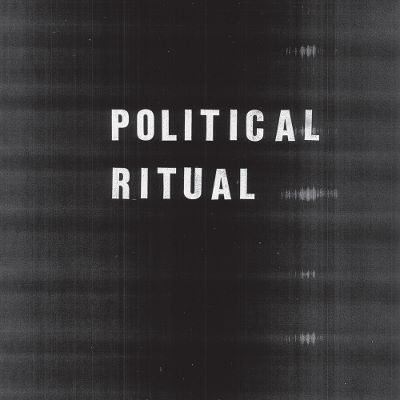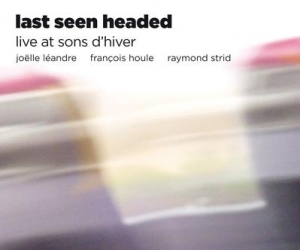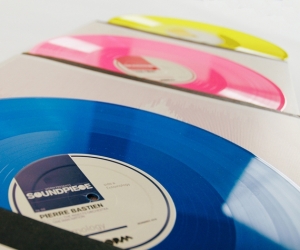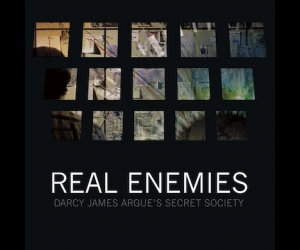
Political Ritual, the eponymous release by the Québécois electronic music duo of Maxime Corbeil-Perron and Félix-Antoine Morin, presents itself as a mystery, white print on a grey cover, a series of lighter, vertical oscilloscope intrusions appearing almost possibly accidental. The roles of the two performer–composers—here improvisers—are not distinguished. Each side of the LP presents a piece about twenty minutes in length. Each is almost monolithic, made up of electronic and electronically altered layers.
Specific textures emerge intermittently, through fields of static and waves of droning sound that sometimes move with the inevitability of lava, that flux of molten stone, metal, and ash, or perhaps an oil spill or an approaching tsunami. While the LP itself is free of annotation, there are brief hints in the press release, including a description of the group’s music and the titles of the two sides. Field recordings and instruments come upon by chance enter the fold.
The first side, Cérémonie, is strongly rhythmic, whether the beats are heard as patterns of static or feedback. There are two marked shifts in the work. The first is an extended keyboard improvisation beginning around the seven-minute mark, perhaps “a wedding harmonium bought from an old, hungry man in an Indian village improvises modal lines,” mentioned in the online text. The second is a sudden break and bass-ward glissando at the eighteen-minute mark that suddenly shifts the whole forward movement of the music. That doesn’t sound like much, but it’s a major event in this context, a wholly new plane.
The second side, Projection_cathodique, begins with chant amidst the static and drones. Its developing rhythms are oscillations, pulses rather than beats. The piece repeatedly cycles towards a crescendo, its materials echoing, the texture thickening; when the patterns change, there’s a sudden turn from tension to repose.
These pieces are genuine experiences—penetrating, insistent, necessary works that fully occupy the time of their realization and hearing. Repeated listening changes them: they literally sound different, richer, more complex, with new elements and relationships emerging, transitions becoming more (and sometimes less) dramatic. Searching this music for answers to what politics and ritual share, only the commonalities of mystery, form, and duration emerge—politics and ritual indistinguishable from one another and from consciousness itself.




